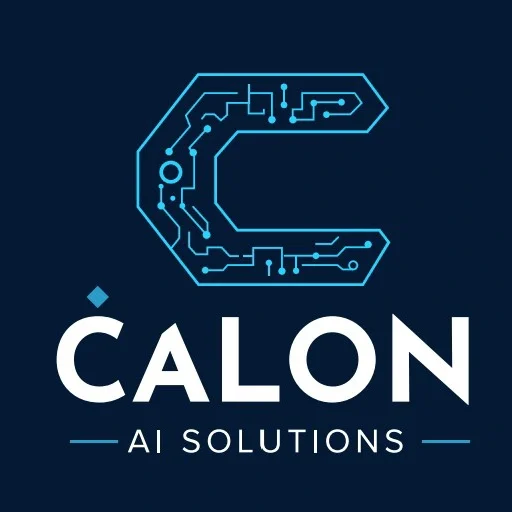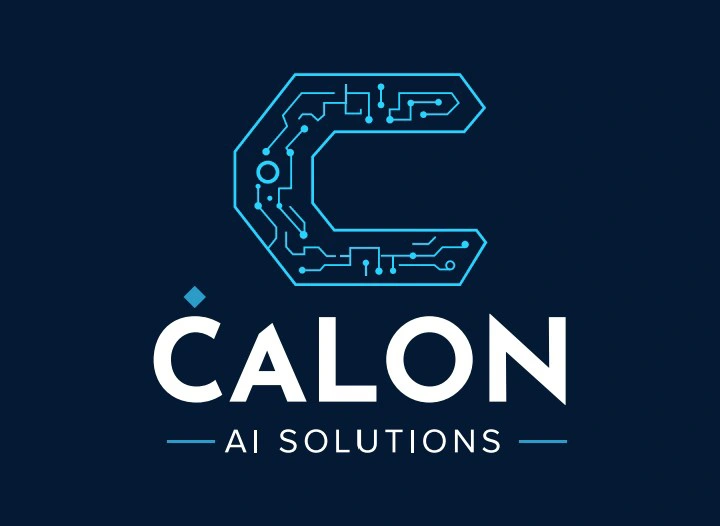Revolutionising Healthcare with Prompt Engineering: A Practical Guide for AI Applications
Introduction
The healthcare industry is transforming digitally, with AI at the forefront of
delivering efficient, precise, and cost-effective solutions. One area that significantly impacts AI’s
effectiveness in healthcare is prompt engineering—a method for crafting precise instructions that guide AI to generate relevant, tailored responses. At Calon AI Solutions, we employ prompt
engineering to maximise AI’s impact in healthcare, ensuring it responds accurately to complex
medical needs.

In this blog, we’ll explore how prompt engineering can optimise AI applications in healthcare,
including patient engagement, administrative tasks, and personalised care.
The Role of Prompt Engineering in Healthcare
Prompt engineering is essential in healthcare because it enables AI systems to provide accurate
and context-sensitive responses. This is especially crucial in a field where clarity, sensitivity, and
precision are paramount.
Here’s why prompt engineering is valuable in healthcare:
• Enhances Patient Interaction: Clear prompts help AI provide friendly and empathetic
responses, improving patient trust and satisfaction.
• Streamlines Administrative Work: Reduces the time healthcare professionals spend on
repetitive tasks, enabling them to focus on patient care.
• Supports Clinical Decision-Making: Well-structured prompts can guide AI to deliver
data-driven insights, supporting informed medical decisions.
Fundamentals of Effective Prompt Engineering in Healthcare
To fully leverage AI in healthcare, prompts need to be crafted carefully to avoid misinterpretation
and ensure compliance with medical standards.
1. Use Medical Terminology Wisely
Precision in language is critical. Prompts must employ accurate medical terms but remain
understandable for patients and healthcare providers. For instance, “Generate a patient-friendly
explanation of the importance of an annual health screening” is more effective than a vague
request like “Explain health screenings.”
2. Prioritise Privacy and Sensitivity
Healthcare AI interactions must prioritise patient confidentiality and handle sensitive topics with
care. A prompt such as, “Provide a compassionate response to a patient requesting mental
health support, encouraging them to reach out to our mental health specialist,” helps ensure that
the AI respects patient vulnerability.
3. Incorporate Clinical Context
Including context about the patient’s medical history or condition, when applicable and secure,
enhances response relevance. For instance, a prompt like, “Suggest post-surgery care tips for a
patient recovering from knee surgery” produces a more focused and useful response than
generic advice.
4. Use Structured Templates
Structured prompts, such as question-answer formats or care-plan outlines, can improve AI
accuracy. For example, “Provide a three-step care plan for managing diabetes that includes
lifestyle tips, diet advice, and medication reminders” ensures the AI delivers a comprehensive,
clear response.
Key Applications of Prompt Engineering in Healthcare
Prompt engineering unlocks numerous AI applications in healthcare, from patient support to
back-office efficiency. Below are some of the most impactful uses.
Patient Engagement
AI chatbots guided by well-crafted prompts can offer empathetic support and answer common
patient queries, such as appointment scheduling or prescription refills. A prompt like, “Respond
warmly to a patient asking about their prescription refill schedule,” ensures the AI remains
supportive, a key aspect in building patient trust.
Medical Triage and Appointment Scheduling
By defining specific responses based on patient symptoms, prompt engineering can assist in
initial triage, guiding patients to the appropriate care level. For instance, “If the patient reports
mild symptoms, suggest contacting a primary care physician; if severe, recommend emergency
services” enables AI to provide tailored guidance based on severity.
Administrative Assistance
Healthcare providers handle substantial administrative tasks, from processing insurance forms to
updating patient records. AI can streamline these workflows with prompts like, “Provide a
summary of today’s appointments and flag any cases needing urgent follow-up.” This approach
frees up administrative staff to focus on more critical tasks.
Personalised Health Advice
Prompt engineering allows AI to provide tailored health advice, which is particularly useful for
chronic condition management. For example, a prompt such as, “Offer diet and lifestyle advice
for a patient with Type 2 diabetes” results in targeted guidance, helping patients manage their
conditions more effectively.
Advanced Prompt Engineering Techniques for Healthcare
Once basic prompt engineering techniques are mastered, advanced methods can refine AI
outputs, ensuring even higher accuracy and reliability in healthcare applications.
Role-Specific Prompts
Instructing AI to “act” as a healthcare specialist enhances response quality. A prompt like, “Act
as a dietitian and provide dietary recommendations for a patient managing hypertension”
produces expert-level advice aligned with patient needs.
Conditional Prompts
Incorporating conditions within prompts enables AI to offer customised responses based on
patient data. For instance, “If the patient’s blood sugar levels are high, recommend steps to
lower them; if within the normal range, provide maintenance tips” allows for dynamic responses,
making the AI more adaptable.
Evidence-Based Responses
Prompts that ask AI to cite reputable sources or provide evidence-based recommendations
ensure medically sound advice. For instance, “Provide a recommendation on daily water intake
for an adult, supported by a recent medical study” encourages reliable, data-driven responses,
increasing patient confidence.
Benefits of Prompt Engineering for Healthcare Providers
Incorporating prompt engineering into healthcare AI systems offers several benefits for both
providers and patients:
• Enhanced Patient Satisfaction: Patients feel valued and understood through AI
interactions that are friendly, clear, and responsive to their needs.
• Efficiency and Cost Savings: Prompt engineering reduces time spent on repetitive
tasks, allowing healthcare providers to allocate resources to higher-priority activities.
• Improved Care Outcomes: AI-generated insights, driven by well-structured prompts,
support healthcare professionals in making informed, data-backed decisions.
Key Takeaways
Prompt engineering is transforming the healthcare industry by:
• Empowering AI to deliver empathetic, patient-focused interactions.
• Streamlining administrative workflows, allowing providers to focus on patient care.
• Offering data-driven, evidence-based recommendations to support patient
management.
Healthcare providers looking to integrate AI can benefit greatly from prompt engineering. By
crafting structured prompts, AI applications can enhance patient care and operational efficiency,
all while maintaining the highest standards of quality and sensitivity.
Conclusion & Call to Action
Prompt engineering is a vital tool for healthcare providers aiming to improve patient engagement,
operational efficiency, and overall care quality. With Calon AI Solutions, you can implement
prompt engineering strategies that elevate your healthcare practice, streamline workflows, and
enhance patient satisfaction.
Let’s get started with Calon AI Solutions. Connect with our team to explore how prompt
engineering can optimise your healthcare operations and patient interactions, delivering reliable,
responsive, and personalised care solutions

